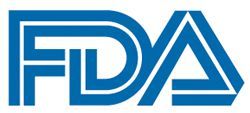FDA Grants Orphan Drug Designation to BDC-1001 in Gastric Cancers
The FDA has given an orphan drug designation to BDC-1001 for the treatment of patients with gastric cancers, including gastroesophageal junction cancer.

The FDA has given an orphan drug designation to BDC-1001 for the treatment of patients with gastric cancers, including gastroesophageal junction cancer, according to an announcement from Bolt Biotherapeutics.1
BDC-1001 is a HER2-directed Boltbody™ Immune-Stimulating Antibody Conjugate (ISAC) currently in phase 2 development for patients with HER2-positive breast, endometrial, colorectal, and gastroesophageal cancers. This ISAC consists of a HER2-targeting trastuzumab (Herceptin) biosimilar conjugated to a proprietary TLR7/8 agonist with a non-cleavable linker with a cell membrane–impermeable payload.1,2 This agent activates the innate immune system and generates a tumor-targeted adaptive immune response.2
BDC-1001 is under evaluation in 2 phase 2 clinical trials being conducted in the United States, Europe, and South Korea. A 4-part, first-in-human phase 1/2 trial (NCT04278144) is investigating the agent as monotherapy and in combination with nivolumab (Opdivo) in patients with advanced HER2-expressing solid tumors, including colorectal, endometrial, and gastroesophageal cancers.1,3 Another phase 2 trial (NCT05954143) is evaluating the safety and efficacy of BDC-1001 with or without pertuzumab (Perjeta) in patients with HER2-positive breast cancer.4
“Receiving orphan drug designation from the FDA is an important step forward in the development of BDC-1001 and reinforces the potential of BDC-1001 to address unmet needs for patients with gastric cancers,”Edith A. Perez, MD, chief medical officer of Bolt Therapeutics, Inc., stated in a press release.1 “Our Boltbody™ ISAC platform is the only one with emerging clinical validation, and we are working diligently to advance our ongoing phase 2 program.”
That phase 1/2 trial aims to enroll 390 patients with advanced solid tumors with documented HER2 protein expression or gene amplification who have exhausted approved therapies or for whom approved therapies are not clinically indicated.3 Patients need to have measurable disease per RECIST v1.1 criteria, an ECOG performance status of 0 or 1, and available tumor tissue for exploratory biomarker exploration.
Patients will be excluded if they have a history of severe hypersensitivity to any study drug ingredients; received prior treatment with a TLR7, TLR8, or TLR 7/8 agonist; impaired cardiac function or a history of clinically significant cardiac disease; active HIV, hepatitis B, hepatitis C, or SARS-CoV2 infection; or untreated central nervous system, epidural tumor, or brain metastases.
The key objectives for the dose-escalation portion of the trial was to determine the safety, tolerability, maximum tolerated dose (MTD) and recommended phase 2 dose (RP2D) of the agent as monotherapy and in combination with nivolumab. The primary outcome of the dose-expansion period of the study is overall response rate, including complete and partial responses. Secondary outcomes include the pharmacokinetics of BDC-1001, duration of response, disease control rate (DCR), progression-free survival, incidence of anti–BDC-1001 antibodies, incidence of adverse effects (AEs) and serious AEs, and incidence of potential immune-related toxicities.
Results showed that 6 patients achieved partial responses, 4 of whom received the agent at 20 mg/kg every 2 weeks, 2 each who received the agent as monotherapy and in combination with nivolumab.2 Additionally, 12 patients had stable disease (SD) lasting at least 24 weeks. In the population of patients who received the agent at 20 mg/kg every 2 weeks, 3 patients from the monotherapy arm and 4 patients from the combination arm had SD.
Furthermore, at the data cutoff date of March 24, 2023, the DCRs at 24 weeks or longer were 43% and 57% in the monotherapy and combination arms, respectively, and 57% and 71% of patients in the monotherapy and combination arms, respectively, experienced tumor shrinkage. Tumor shrinkage occurred in patients with tumor types including gastric, biliary, cervical, breast, colorectal, lung, endometrial, skin, and ovarian cancers.
The agent was well tolerated at all dose levels and frequencies up to 20 mg/kg weekly, and the MTD was not reached. One patient experienced a dose-limiting toxicity of grade 3 supraventricular tachycardia with BDC-1001 at 8 mg/kg once weekly in combination with nivolumab.
Based on these findings, 20 mg/kg once every 2 weeks was selected as the RP2D.2 These findings prompted the ongoing phase 2 investigation of the agent.1
“In addition to gastric cancer, we are also evaluating BDC-1001 in 3 other tumor types with significant unmet medical need: HER2-positive breast, colorectal, and endometrial cancers,” Perez stated in the press release.1“We look forward to advancing BDC-1001 in clinical development and bringing this novel immunotherapy to patients in need of further treatment options.”
References
- Bolt Biotherapeutics receives orphan drug designation for BDC-1001 for treatment of gastric cancers. News Release. Bolt Biotherapeutics. September 28, 2023. Accessed October 2, 2023. https://investors.boltbio.com/news-releases/news-release-details/bolt-biotherapeutics-receives-orphan-drug-designation-bdc-1001
- Li BT, Pegram MD, Lee KW, et al. A phase 1/2 study of a first-in-human immune-stimulating antibody conjugate (ISAC) BDC-1001 in patients with advanced HER2-expressing solid tumors. J Clin Oncol. 2023;41(suppl_16):2538. doi:10.1200/JCO.2023.41.16_suppl.2538
- A first-in-human study using BDC-1001 as a single agent and in combination with nivolumab in advanced HER2-expressing solid tumors. ClinicalTrials.gov. Updated September 13, 2023. Accessed October 2, 2023. https://clinicaltrials.gov/study/NCT04278144
- Trial of BDC-1001 +/- pertuzumab in subjects with HER2-positive metastatic breast cancer. ClinicalTrials.gov. Updated September 21, 2023. Accessed October 2, 2023. https://classic.clinicaltrials.gov/ct2/show/NCT05954143



